In our December 30th blog, we explored the new research
which reveals 7 common cat traits! Understanding your cat’s traits is critical when it comes to fulfilling your cat’s needs.
Today’s blog will discuss three of the five cat personality traits, the specific breeds who are most prone to these personality traits and how the cat parent can encourage or discourage these traits.
Remember, before adopting a new kitten or cat, honestly consider the feline’s
breed and associated traits from “breed-related genetics.”
Are you willing to live with those inherited traits?
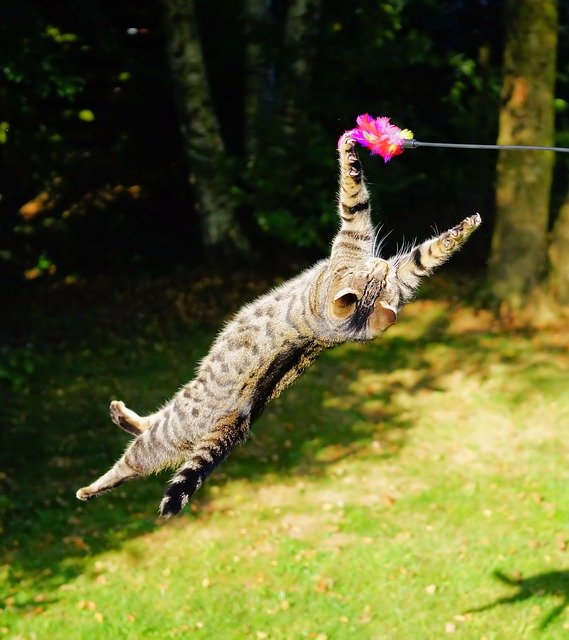
1. Common Cat Traits: Activity and Playfulness
Certain feline breeds love being active and playful including the Bengal and Abyssinian followed by the:
- Siamese.
- Oriental.
- Cornish Rex.
The DVM360 found that “male cats far outranked females in being more outgoing, affectionate and playful.”
In contrast, the Persian, Exotic Shorthair and Ragdoll are relatively inactive breeds.
Keep in mind, these are guidelines. Each cat will have its own preferences for activity and playfulness.
But you can encourage a lazy cat to play more with these tips.
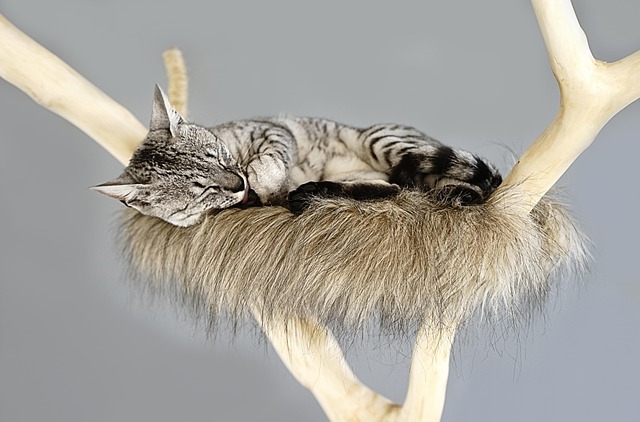
- Have plenty of toys your cat loves and rotate them to encourage more play.
- Engage in quality playtime with your cat every day.
- Engage your cat’s hunting instincts with battery-operated toys.
- Use food puzzles to encourage your cat’s engagement.
- Add a more active cat or kitten as a playmate.
- Create a stimulating environment with vertical spaces especially near windows:
- Perches.
- Cat Trees.
- Suspended catwalks.
But what if your cat is too active and even destructive? The tips below can help your cat chill out!
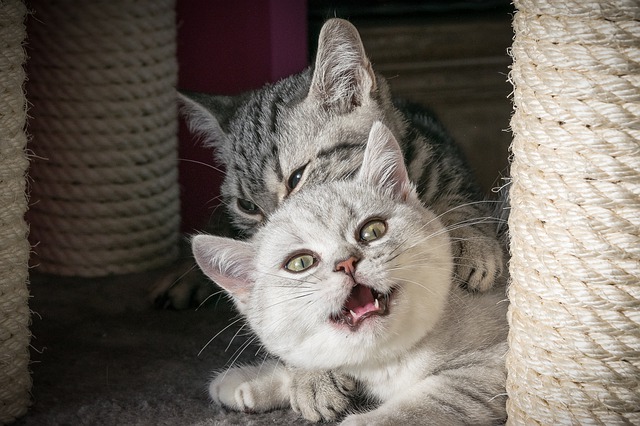
- Ensure enough one-on-one playtime daily.
- Redirect hyper-activity to an acceptable behavior like chasing a toy or playing with an empty box.
- Offer your cat outdoor experiences to relieve “cabin fever.” For example:
- A secure outdoor enclosure, known as a catio.
- Regular walks.
- Proactively address any boredom your cat may be feeling with:
- Toys and food puzzles.
- Extra play and exercise.
- Scratching posts.
- Another cat.
- Consider feline nutraceuticals and/or a calming collar.
According to Homes Alive Pets,
“cats need between 30-60 minutes of activity … each day …
depending on age and health conditions.”
Just like with dogs, a tired cat is a happy cat!
2. Common Cat Traits: Fearfulness
According to Veterinary Scientist and Research Author, Hannes Lohi of the University of Helsinki, “the most fearful (cat) breed was the Russian Blue, while the Abyssinian was the least fearful.”
Interestingly, DVM360.com says,
“females far outrank males in being more aggressive and fearful.”
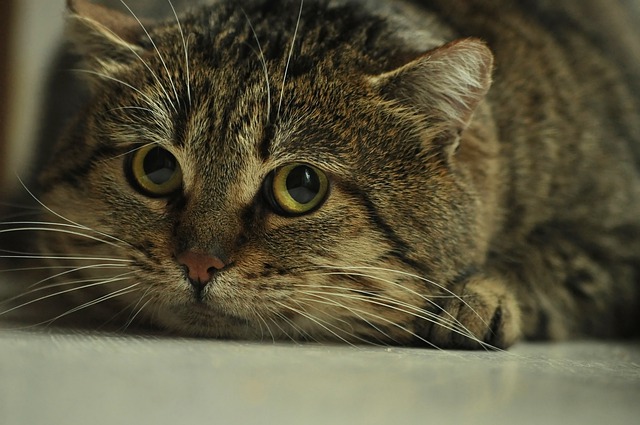
Living with a fearful cat can be challenging. Fearful or anxious cats may act out aggressively so try the tips below.
- Give them their own space to hide and relax.
- Stay calm and keep a consistent routine.
- Never push a fearful cat outside its comfort zone.
- Introduce new pets, people or changes in the home slowly.
- Try a pheromone plug-in, diffuser or spray to calm your cat.
3. Common Cat Traits: Aggression Towards Humans
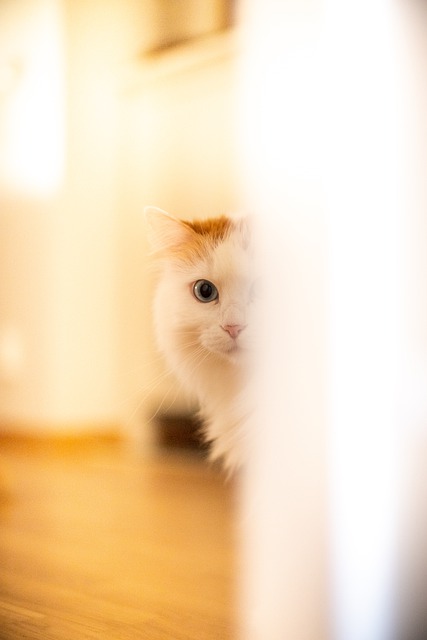
Certain cat breeds tend to be more aggressive towards humans including the:
- Bengal.
- Abyssinian.
- Turkish Van (pictured on the right).
- Siamese.
The Ragdoll ranks low for aggression along with the Sphynx, Burmese and Maine Coon.
Never encourage aggressive behavior! But how can you discourage aggressive cat behavior?
Feline aggression can come from boredom and/or pent-up energy. Follow the tips above to help your cat positively deal with his boredom and excess energy through daily play and mental stimulation and enrichment.
If these tips do not make a difference in your cat’s aggression, look for the triggers causing your cat to act aggressively. Removing these triggers, avoiding pushing your cat beyond his comfort zone and enough activity and interaction should help reduce your cat’s desire to aggressively strike out.
If any negative behavior(s) continue despite your best efforts, rule out any medical issues (including stress and anxiety) with your veterinarian
and consult a certified feline behaviorist.
(Note: The remaining 2 personality cat traits will be covered in our next blog. So, subscribe to our blog (in the lower right-hand column) to
receive notifications!)
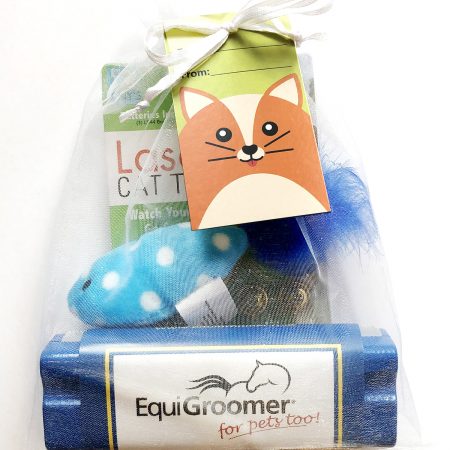
Cats challenged with aggression or fear can be helped to calm down with regular brushing.
Enhance your bond and quality time with your favorite feline with the EquiGroomer EasyGroomer Tools!
Don’t miss our Cat Gift Bag too! All bags include a Shedding Brush, Laser Pointer and Cat Toy!
For individual or bulk orders, call 860-573-0604 or click here to send us an email.


